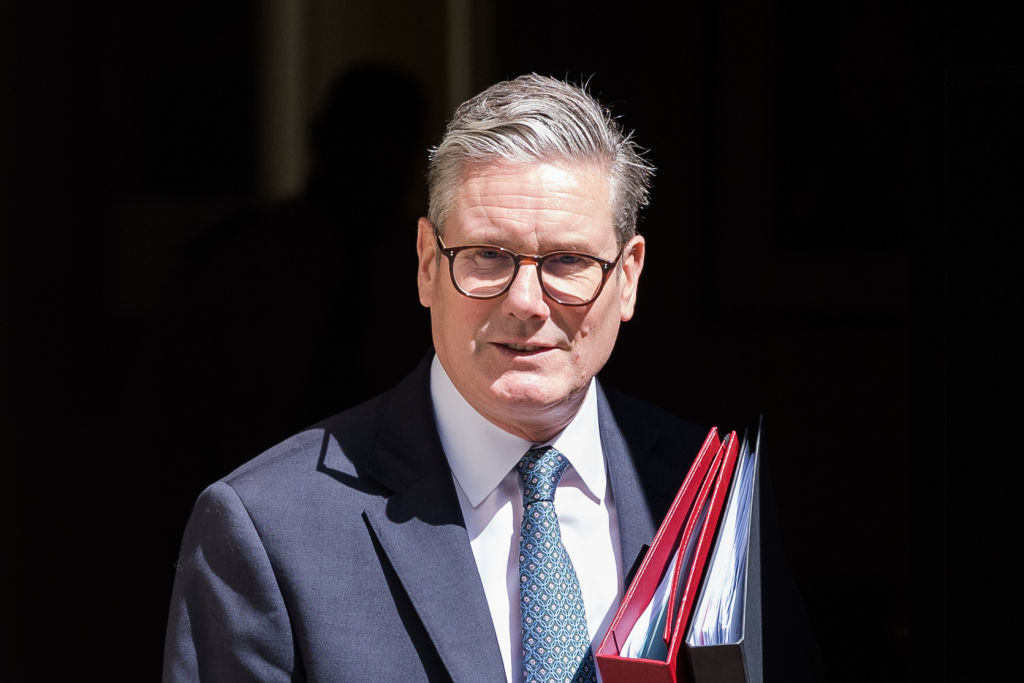Pressure grows on Labour to remove the two-child benefit cap - here’s everything you need to know
The cap, which was introduced by the previous Conservative government, has been criticised for worsening child poverty


Get the latest financial news, insights and expert analysis from our award-winning MoneyWeek team, to help you understand what really matters when it comes to your finances.
You are now subscribed
Your newsletter sign-up was successful
Want to add more newsletters?

Twice daily
MoneyWeek
Get the latest financial news, insights and expert analysis from our award-winning MoneyWeek team, to help you understand what really matters when it comes to your finances.

Four times a week
Look After My Bills
Sign up to our free money-saving newsletter, filled with the latest news and expert advice to help you find the best tips and deals for managing your bills. Start saving today!
Labour leader Keir Starmer is under growing pressure to scrap the controversial two-child benefit cap, despite defeating a King's Speech amendment on Tuesday evening that called for the limit to be removed.
The cap, which was introduced previously by the Conservatives, has been criticised for worsening child poverty, with the policy restricting child welfare payments to just the first two children born to most families.
Many Labour backbenchers had hoped the Prime Minister was going to announce the removal of the cap in last week’s King’s Speech but it was notably absent from the 40 bills that were put forward.
MoneyWeek
Subscribe to MoneyWeek today and get your first six magazine issues absolutely FREE

Sign up to Money Morning
Don't miss the latest investment and personal finances news, market analysis, plus money-saving tips with our free twice-daily newsletter
Don't miss the latest investment and personal finances news, market analysis, plus money-saving tips with our free twice-daily newsletter
An amendment was later tabled by SNP Westminster leader Stephen Flynn to remove the cap but the House of Commons voted 363 to 103 to reject it on Tuesday, although seven Labour MPs were suspended for voting in favour of the amendment.
Chancellor Rachel Reeves has said she would not pledge to remove the limit “without being able to say where the money was going to come from” to fund the move. She suggests it would cost £3bn to scrap the policy.
Campaigners are hoping its removal could still be announced in the upcoming Autumn Budget.
What is the two-child benefit cap?
The two-child benefit cap stops parents from claiming universal credit or tax credit for their third child. It was introduced by the then-Conservative chancellor George Osborne and applies to children born after 6 April 2017.
The two-child cap does not apply to child benefit, which is a weekly payment and is made for every child someone has.
At the time of its introduction, Osborne said that the benefits being paid to larger families were too costly and that the implementation of the cap would “ensure that families in receipt of benefits faced the same financial choices about having children as those supporting themselves solely in work”.
How has the two-child benefit cap affected families?
Official figures show that 1.6 million children are living in families impacted by the child benefit limit. The Child Poverty Action Group says the cap is the “biggest driver of rising child poverty”.
They add: “Delaying its abolition will harm many more young lives and undercut the government’s poverty-reduction plans.”
In response to the seven Labour MPs being suspended on Tuesday, Matt Wrack, general secretary of the Fire Brigades Union, said: "1.6 million children are affected by the two-child cap, and 300,000 children live in poverty as a result of it. The UK is a rich country with ample resources for everyone to live a decent life.
"The seven MPs who voted to scrap the cap spoke for millions of trade union members and many Labour Party members."
Get the latest financial news, insights and expert analysis from our award-winning MoneyWeek team, to help you understand what really matters when it comes to your finances.
Chris is a freelance journalist, and was previously an editor and correspondent at the Financial Times as well as the business and money editor at The i Newspaper. He is also the author of the Virgin Money Maker, the personal finance guide published by Virgin Books, and has written for the BBC, The Wall Street Journal, The Independent, South China Morning Post, TimeOut, Barron's and The Guardian. He is a graduate in Economics.
-
 Should you buy an active ETF?
Should you buy an active ETF?ETFs are often mischaracterised as passive products, but they can be a convenient way to add active management to your portfolio
-
 Power up your pension before 5 April – easy ways to save before the tax year end
Power up your pension before 5 April – easy ways to save before the tax year endWith the end of the tax year looming, pension savers currently have a window to review and maximise what’s going into their retirement funds – we look at how
